The advance notice for the November 9, 1891, performance of Lohengrin included the names of producers, principal singers, conductor and stage manager, but not the accompanying orchestra.
Following the third subscription week of its first season, the Chicago Orchestra was in the pit of the Auditorium Theatre for performances by the Metropolitan Opera Company from November 9 until December 12, 1891, including three run-out performances at the Amphitheatre Auditorium in Louisville, Kentucky, on December 7 and 8.
The first opera given was Wagner’s Lohengrin — sung in Italian — led by Auguste Vianesi, the Orchestra’s first guest conductor. That performance featured no less than five singers making their U.S. debuts: soprano Emma Eames, mezzo-soprano Giulia Ravogli, baritone Antonio Magini-Coletti and tenor and bass brothers Jean and Édouard de Reszke.
On November 10, 1891, the Chicago Daily Tribune reported that even though several patrons were late in arriving due to “the fact that carriages approached in single file and the process of unloading was rather slow . . . [they] failed to dismay Sig. Vianesi, who began his calisthenic exercise with the baton promptly at eight. Eighty-five musicians of the Chicago Orchestra played the graceful Lohengrin prelude in a style which in the show-bill style was ‘alone worth the price of admission.’”
In the title role, Jean de Reszke “has the dignity and aplomb of an artist to the manner born and the glittering armor of the Knight of the Grail becomes him well. . . . [He] is an artist to the tips of his mailed boots and gloves. He has immense personal magnetism, and when he casually conveyed to Elsa the information, ‘Io t’amo,’ there was a responsive thrill under many a pretty corsage bouquet.”
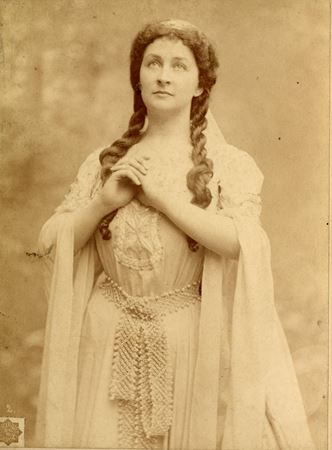
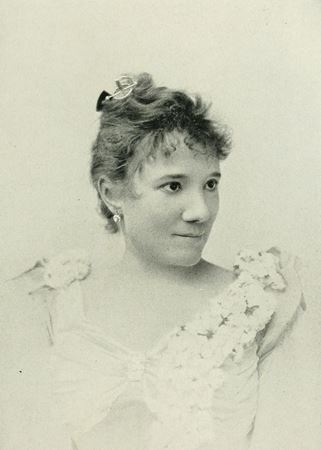
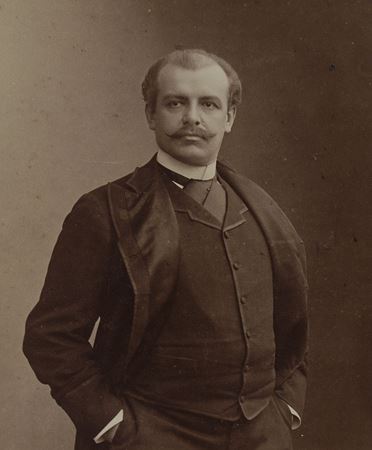
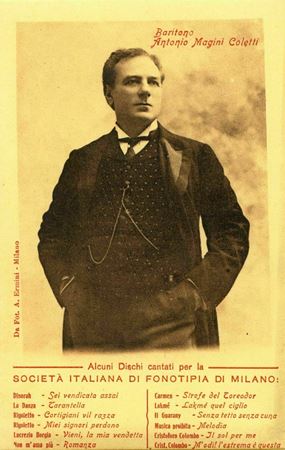
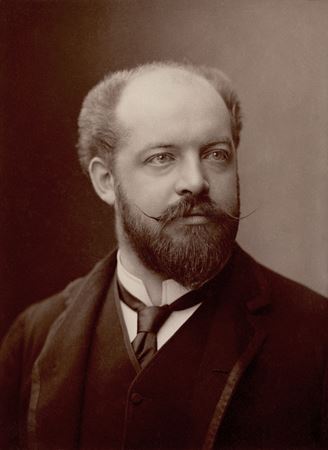
“Her voice is one of beauty, and she uses it in a manner that shows great care and study in the training of it,” continued the reviewer in describing Emma Eames. “Here is a classic beauty, and a more charming picture than she presented when clothed in the wedding robes of Elsa has rarely been seen upon any stage.”
On November 14, the New York Times reported from Chicago. “It was though reason for not a little regret both in New York and this city when it was announced that the management of the Metropolitan Opera House, which in a measure seems to control the operatic destiny of the country, had decided to discontinue German opera this year and to substitute therefore Italian opera. By selecting Lohengrin as the opera with which to open the present season, Messrs. Abbey and Grau made a praiseworthy compromise. All fears that the season would be composed of a series of repetitious of hackneyed Italian operas were thus allayed. It is too early to pass any judgment, but, according to the indications to be found in this week’s performances, it is almost safe to assume that in many respects this year will witness some of the most brilliant performances of grand opera ever given in this country.”
Regarding Édouard de Reszke as Heinrich, the Times continued, that he was “endowed with a voice which for power and quality, richness and warmth, range and volume, has seldom been equaled. He displayed the highest art in the use of it. His acting also was artistic, and dignified, and his impersonation was in every respect a regal one.” As Ortrud, Giulia Ravogli, “displayed histrionic ability of an exceptionally high order and a mezzo-soprano voice of extensive compass and considerable power.”
Auguste Vianesi (ca. 1875), the Chicago Orchestra's first guest conductor
Mathieu Deroche (courtesy of the Metropolitan Opera Archives)
Additional singers who appeared during the residency were among the most famous of the day, including sopranos Emma Albani, Lilli Lehmann and Marie Van Zandt; mezzo-soprano Sofia Scalchi; tenor Fernando Valero; baritones Edoardo Camera and Jean Martapoura; and bass Jules Vinché. A staggering number of operas were performed, including Bellini’s Norma and La sonnambula; Flotow’s Martha; Gluck’s Orpheus and Eurydice; Gounod’s Faust and Romeo and Juliet; Mascagni’s Cavalleria rusticana; Meyerbeer’s Dinorah and Les Huguenots; Mozart’s Don Giovanni; Thomas’s Mignon; and Verdi’s Aida, Otello and Rigoletto.
The final offering of the month-long residency on December 12 was a fourth performance of Lohengrin, and changes in the cast included Valero in the title role, Albani as Elsa, and Vinché as Heinrich; Louis Saar conducted. Two days later on December 14, the company was back in New York for the Metropolitan Opera’s season opening: Gounod’s Romeo and Juliet featuring Eames and the de Reske brothers with Vianesi on the podium.
After two run-out performances on December 15 (at the Odeon in Cincinnati) and 16 (in Indianapolis), founder and first music director Theodore Thomas and his Chicago Orchestra resumed the regular season with the fourth subscription week at the Auditorium on December 18.
Wood engraved print of Jean and Édouard de Reszke as Lohengrin and Heinrich
Fred Pegram, The Illustrated London News, 1891



